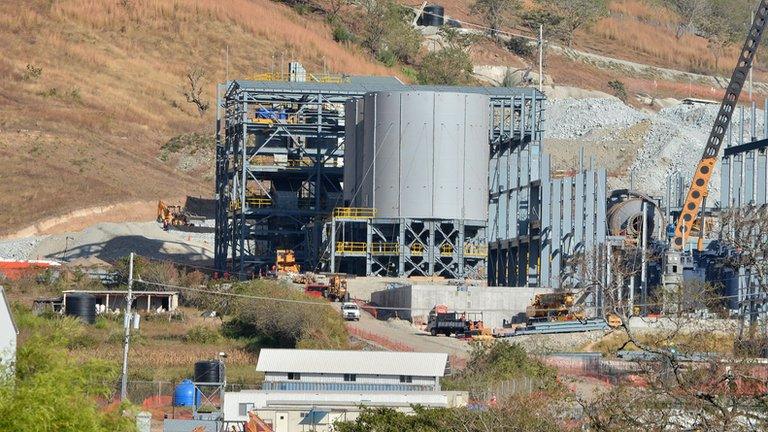Clashes as Guatemalan communities fight mine
- Published
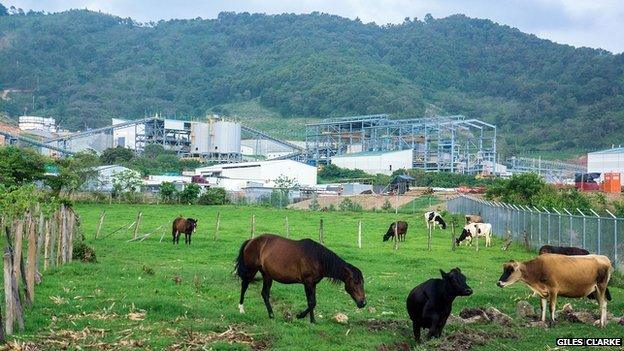
The Escobal silver mine is located in Guatemala's agricultural heartland
On the outskirts of San Rafael las Flores, the Escobal silver mine is an imposing complex of smoking chimneys, processing plants, huge heaps of earth and dozens of trucks, bustling 24 hours a day under the watchful gaze of armed security.
The deep underground mine, owned by Canadian company Tahoe Resources, is slap bang in the middle of Guatemala's southern agricultural heartlands where most families eke out a living growing maize, beans, coffee, avocados, cabbage, bananas and peaches.
The region's distinct cheeses are produced from small herds of cattle seen dotted around the surrounding mountains where Tahoe also owns mining licences.
Here live thousands of Xincas, Guatemala's non-Mayan indigenous people, who revere the mountains and rivers as sacred.
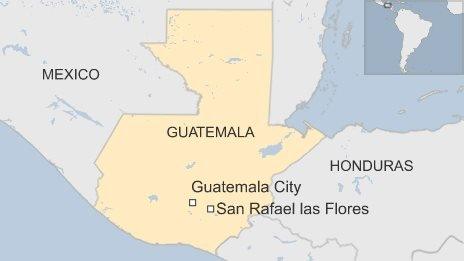
Guatemala's mining sector has grown rapidly since 2006. It is changing the country's landscape and fuelling social conflicts.
There are currently 345 active mining licences, mainly in rural indigenous regions, according to Ministry of Energy and Mines (MEM) figures, with 592 more under consideration.
Tahoe was granted a 20-year exploitation licence by MEM in April 2013 after several years of exploration.
The company reported net profits of $24.8m (£14.8m) in the first quarter of 2014, producing 3,500 tonnes of silver ore each day.
Environmental concern
Communities are hugely concerned about possible contamination of water sources, and the catastrophic impact this could have on their health and livelihoods.
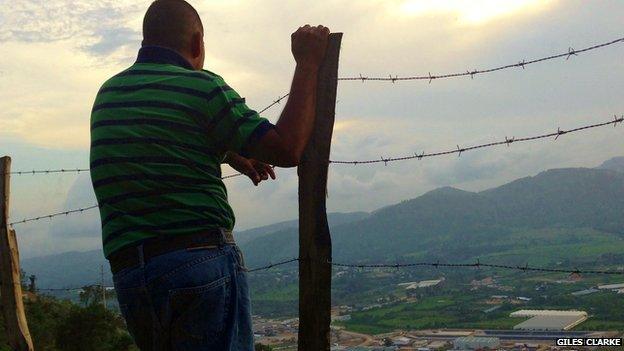
Local activists say they fear the mine could have an adverse environmental impact
There was also great unease among many people the BBC interviewed about the military and police presence around the mine.
Local communities started organising protests and votes in 2011. In San Rafael, almost two-thirds of its communities expressed their opposition to the mine in informal polls.
In the five neighbouring areas, where Tahoe also owns licences, tens of thousands of people have voted against mining in formal municipal referenda.
For the Xincas, who have a legal right to be consulted about mega-projects in their territory, mining is an intolerable destruction of Mother Earth, Moises Divas, a member of the Xinca parliament, told the BBC.
Independent experts and Amnesty International have concerns about the robustness of Tahoe's environmental impact assessment (EIA).
The company is currently under investigation for industrial contamination by Guatemala's Public Prosecutors' Office for Crimes against the Environment.
'Biased and unfair'
Oscar Morales, co-founder of the pressure group Committee in Defence of Peace and Life in San Rafael, says that "Tahoe has no social licence to operate its mine".
Tahoe believes the community votes were "biased and unfair".
Head of corporate affairs Edie Hofmeister said they visited 1,200 homes last year and found widespread support for the mine, which had "transformed the community".
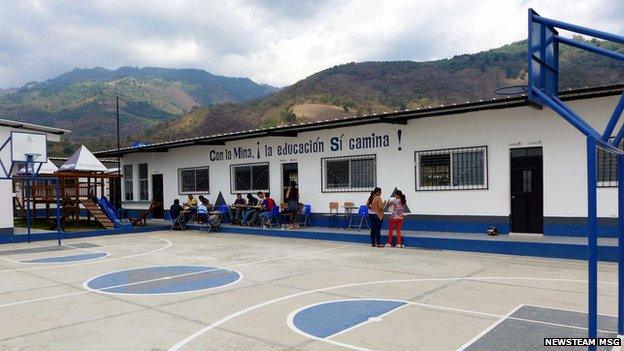
Tahoe has invested in local social projects such as this school in the San Rafael area
Guatemala's energy ministry says Escobal benefits the community through jobs and royalties, and mining is crucial to the country's development.
Ms Hofmeister also said Tahoe regularly monitored water sources and spent a significant proportion of its $2m social budget in 2013 on clean water projects and allaying unfounded fears.
Professor Shin Imai, a lawyer for the transnational justice and accountability project at Osgoode Hall Law School in Ontario, told the BBC he thought Tahoe was "way out of line with international industry standards".
"Going door to door after production has begun and telling people not to worry is not consultation," he said.
Tahoe is accused by local communities, NGOs and lawyers of downplaying violence linked to the mine in reports to investors.
On 27 April 2013, six protesters, including two teenage boys, were seriously injured when company security guards fired bullets and tear gas.
.jpg)
Luis Fernando Garcia (left) and his father Adolfo Augustin Garcia were among the six injured in the protests
Days later, the security chief, Alberto Rotondo, was arrested at the airport trying to leave the country.
Incriminatory wiretap evidence implicating Mr Rotondo in the shooting was played at his first court hearing.
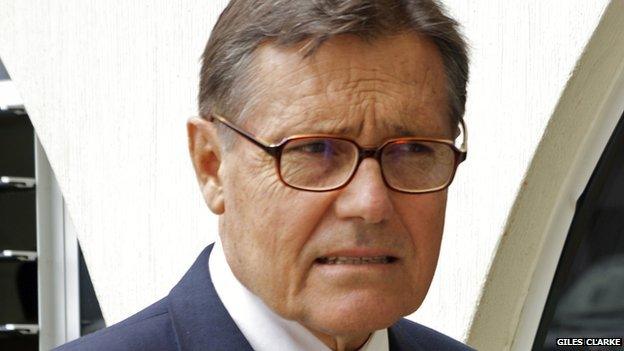
Alberto Rotondo has denied charges of assault, causing bodily harm and obstruction of justice
Tahoe initially defended him, but fired him "within a couple of days" for what Ms Hofmeister described as "breaching company protocol".
Mr Rotondo denies charges of assault, causing bodily harm and obstruction of justice. His trial will decide whether live ammunition or rubber bullets were used.
State of siege
On 2 May 2013, Guatemala's president declared a state of siege around the Escobal mine "to quell criminal gangs".
Thousands of troops were deployed, constitutional rights suspended and scores of anti-mining activists arrested.
In April of this year, Topacio Reynoso, a 16-year-old leader of the youth movement against mining, was shot dead.
Ms Hofmeister said it was not materially relevant to tell investors about the "skewed consultations" or the criminal charges against Mr Rotondo, who was "contracted and not employed" by Tahoe.
"The vast majority of violence has been perpetrated against our property, employees and contractors," she added.
Tahoe hopes to cash in further on the booming precious metal market by ramping up production to 4,500 tonnes per day by 2016.
It hopes Escobal will become the world's third-biggest silver mine.
Expansion plans
Such ambitious expansion requires substantial extra investment.
Almost 90% of Guatemala's mines are Canadian owned, and the Canadian Pension Plan - which recently tripled its investment in Tahoe - is being urged by NGO Mining Watch to divest from what it called a "risky" and "irresponsible" business.
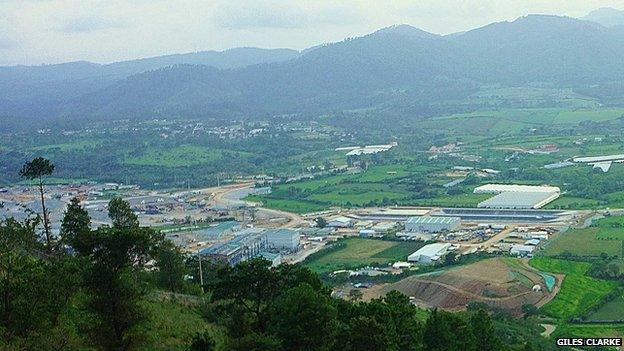
The government says mining is crucial to Guatemala's development
Professor Imai is one of those who argues that as "Escobal is Tahoe's only business, the failure to fulfil its legal obligations and fully disclose widespread community opposition and criminal matters related to Alberto Rotondo should worry investors".
One of the world's biggest investment funds, Norway's sovereign pension fund, worth $850bn, has recently divested from several controversial mines.
The BBC understands that it is reviewing its Tahoe investment as part of a wider review into mining.
Magnus Bain, from the fund's ethics council, would not confirm details, but told the BBC: "We are aware of the conflicts related to mining operations in Guatemala."
It remains to be seen whether local strife costs Tahoe international investors.
Xinca leader Moises Divas said: "Our mandate it clear: we do not want mining in our territory. We will fight as long as necessary to protect our way of life."
- Published15 January 2024
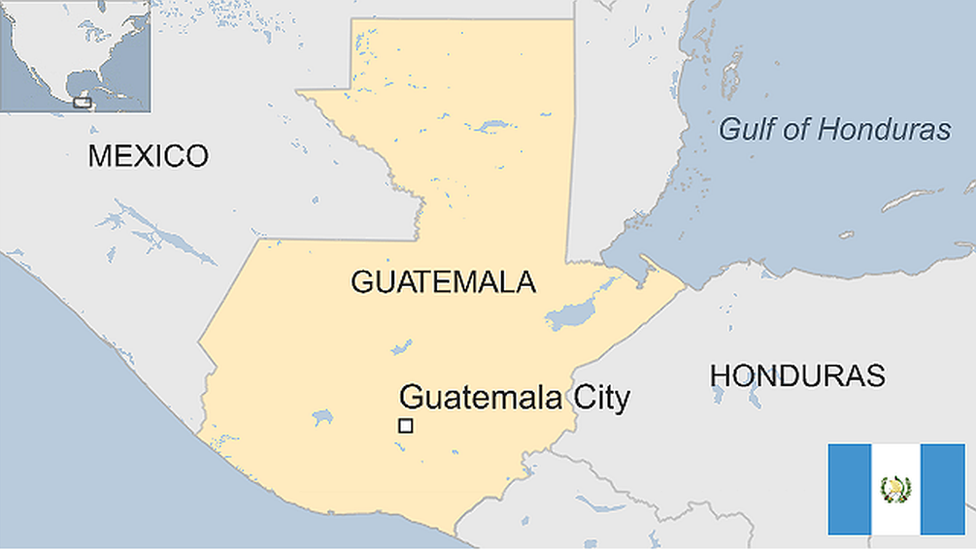
- Published15 January 2014

- Published2 May 2013
